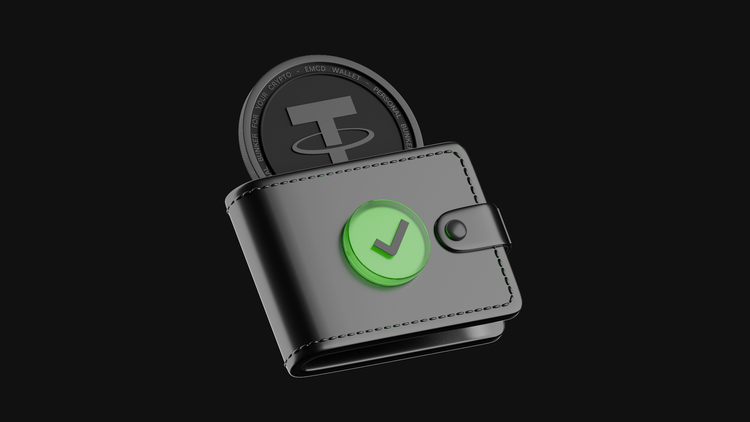Coinbase Commerce vs EMCD: Fees, Features, and the Best Fit for Your Business

Coinbase Commerce and EMCD both offer crypto payment solutions — but they serve very different needs. One is built for simple checkouts. The other is a full-stack infrastructure platform for businesses scaling in crypto. Whether you're running an online store, a fintech app, or a global Web3 product, this comparison will help you choose the best tool for the job.
What Is Coinbase Commerce and How Does It Work for E-Commerce?
Coinbase Commerce is a crypto payment gateway designed for merchants. It allows online businesses to accept Bitcoin, Ethereum, USDC, and a few other cryptocurrencies directly — without middlemen. Payments are non-custodial, and merchants can choose to settle in crypto or convert to fiat using their Coinbase account.
It’s especially popular in Coinbase e-commerce setups and works with major plug-ins like Shopify and WooCommerce. But beyond plug-and-play payments, its functionality is limited.
Why EMCD Is More Than Just a Payment Gateway
EMCD goes far beyond collecting payments. It’s a crypto-fintech infrastructure platform trusted by over 400K users in 80+ countries — offering secure wallets, yield-generating Coinhold accounts, and one of the world’s top 10 Bitcoin mining pools.
For businesses, that means:
- Accepting and storing crypto securely
- Earning passive income on idle assets
- Running custom-branded tools through white-label APIs
- Launching crypto features at scale, with full support
A real-world example: one investment app in LATAM used EMCD’s Coinhold API to offer daily-yield savings accounts to its users — under their own brand, in their own interface. Within weeks, they had activated a new revenue stream while keeping full control of the experience.
In short, EMCD is a toolbox — not just a checkout button.
Core Features Comparison: Coinbase Commerce vs EMCD
Let’s break down the key differences between the two platforms:
| Feature | Coinbase Commerce | EMCD |
| Supported Assets | BTC, ETH, USDC | 23+ coins supported in wallet, 13 mined assets |
| Custody | Non-custodial or settled to Coinbase | Fully self-custodial via EMCD Wallet |
| Passive Income | Not available | Coinhold: up to 14% APY, daily accruals |
| Mining | Not available | Top-10 BTC mining pool (2% of global hash rate) |
| Integration | Plug-ins for Shopify, Coinbase WooCommerce | Modular API, SDK, white-label gateway |
| Compliance | US-based, limited customization | ISO-certified, AML-screened, with 2FA security |
| Best Fit | Online retail stores | Individuals, fintechs, Web3 apps, industrial miners |
Which Cryptocurrencies Can You Accept?
Coinbase Commerce supports a narrow range of cryptocurrencies, mainly Bitcoin, Ethereum, and USDC. For many businesses, that’s enough — but it limits flexibility.
EMCD supports a wider range: you can accept bitcoin and 22+ other assets directly into your wallet. And if mining is part of your stack, EMCD lets you mine 13 cryptocurrencies — giving you more strategic control over your assets.
Fees That Actually Matter: Comparing Payment Models
Coinbase charges a mix of network, conversion, and optional settlement fees — which can quickly add up, especially for high-volume or international sellers. Its fee structure is also harder to optimize for long-term margins.
EMCD’s model is clearer: a fixed base rate with the option to reduce commercial fees to zero by integrating Coinhold. That makes it a more stable and scalable payment system for businesses with repeat flow.
Plug-Ins or Full Stack? Integration Options Compared
If you're running a Shopify store, Coinbase Commerce for WooCommerce or similar plug-ins will do the job — setup is quick, and the functionality is enough for basic crypto checkout.
But for developers or platforms building crypto-native experiences, EMCD wins on flexibility:
- White-label APIs for wallets, Coinhold, and mining
- SDKs for fast integration
- Scalable backend for fintechs and Web3 apps
You’re not just accepting crypto — you’re building with it.
Security and Compliance: How Each Platform Protects You
Security is non-negotiable in crypto — and both platforms take it seriously, but in different ways.
Coinbase is centralized and US-regulated, which suits compliance-heavy markets. But merchants rely on Coinbase to manage custody and settlement, limiting flexibility.
EMCD takes a more transparent approach:
- ISO-certified infrastructure
- AML-screened operations
- Two-factor authentication
- Full control with self-custody
You stay secure — without giving up control.
Tools That Work for You: Wallets and Dashboards
Coinbase provides a clean but basic interface — you can view incoming payments, track status, and manage settings. Good enough for small merchants.
EMCD offers much more: a unified wallet, customizable merchant tools, real-time mining stats, referral insights, and daily performance alerts — all in one dashboard built for business.
Customer Support and Community Trust
EMCD leads with 24/7 live support and a 4.9★ rating on Trustpilot. Its support team solves most issues in under 15 minutes — with real people on chat, not just tickets.
Coinbase Commerce relies on a help desk and ticket system. Support is slower and sometimes inconsistent, as reflected in Google reviews.
If crypto is core to your business, fast support matters — and EMCD delivers it.
Which Platform Is Better for Your Business?
Coinbase Commerce is ideal for small US-based e-commerce stores looking for a quick, straightforward crypto checkout.
EMCD suits a broader spectrum — from individuals managing digital assets and earning daily income, to fintechs and Web3 platforms building scalable crypto products.
Whether you're a solo user seeking passive income or a business launching your own wallet or mining app, EMCD gives you more tools, control, and long-term earning potential.
Looking to plug in? Coinbase works.
Looking to grow with crypto — as a user or a builder? EMCD is the better fit.
Pros and Cons: Comparing Payment Alternatives
Coinbase Commerce
✅ Pros
- Fast integration with Shopify and WooCommerce
- Known brand with strong regulatory backing
❌ Cons
- Limited coin support
- No earning, mining, or white-label tools
EMCD
✅ Pros
- Full-stack crypto infrastructure
- Coinhold with APY + top mining pool
- APIs and SDKs for wallet and merchant integration
❌ Cons
- Slightly longer onboarding if you’re not dev-ready
So, Which Crypto Payment Platform Should You Choose?
If you need a plug-and-play payment gateway, Coinbase Commerce works.
But if your goal is to build, earn, and scale in crypto, EMCD is the smarter commercial choice.
EMCD isn't just a payment tool — it's your crypto infrastructure.
Conclusion: Crypto Tools or Crypto Growth — You Decide
Coinbase Commerce gives businesses a fast way to start accepting crypto — no setup hassle, no deep tech. But if you’re looking beyond simple payments and into real crypto infrastructure, EMCD offers much more.
From passive income and mining to white-label APIs and 24/7 support, EMCD helps individuals and businesses do more with their digital assets — not just move them. Whether you're an individual building daily income or a business deploying your own wallet product, EMCD gives you the flexibility and foundation to grow.
Crypto checkout is step one. Crypto growth starts with EMCD.
Ready to go beyond payments?
Explore EMCD for Business to build wallets, launch Coinhold tools, or tap into one of the world’s most stable mining platforms — all with one trusted partner.
FAQ
What’s the key difference between Coinbase Commerce and EMCD?
Coinbase Commerce is a simple crypto payment tool for e-commerce, while EMCD is a full-stack platform with mining, wallets, and earning tools. EMCD combines infrastructure and income — not just checkout.
Which platform has lower fees for merchants?
EMCD offers flexible fees with options to reduce them to 0% via Coinhold integration. Coinbase Commerce applies standard network and settlement fees that can vary.
Can I receive payments in multiple cryptocurrencies with both platforms?
Coinbase supports a limited set of coins like Bitcoin and USDC. EMCD lets you receive, store, and earn with 23+ digital assets.
How do Coinbase Commerce and EMCD compare in terms of ease of integration?
Coinbase is easier to plug in for simple stores. EMCD offers deeper APIs — ideal if you know how to build custom crypto tools.
Which service is more secure for handling crypto payments?
Both are secure, but EMCD offers self-custody, ISO-certified systems, and 2FA. Coinbase is centralized and handles custody for you.
Which is better suited for small vs. large businesses?
Coinbase fits small shops with basic needs. EMCD scales better with fintechs, Web3 platforms, and advanced crypto users.












